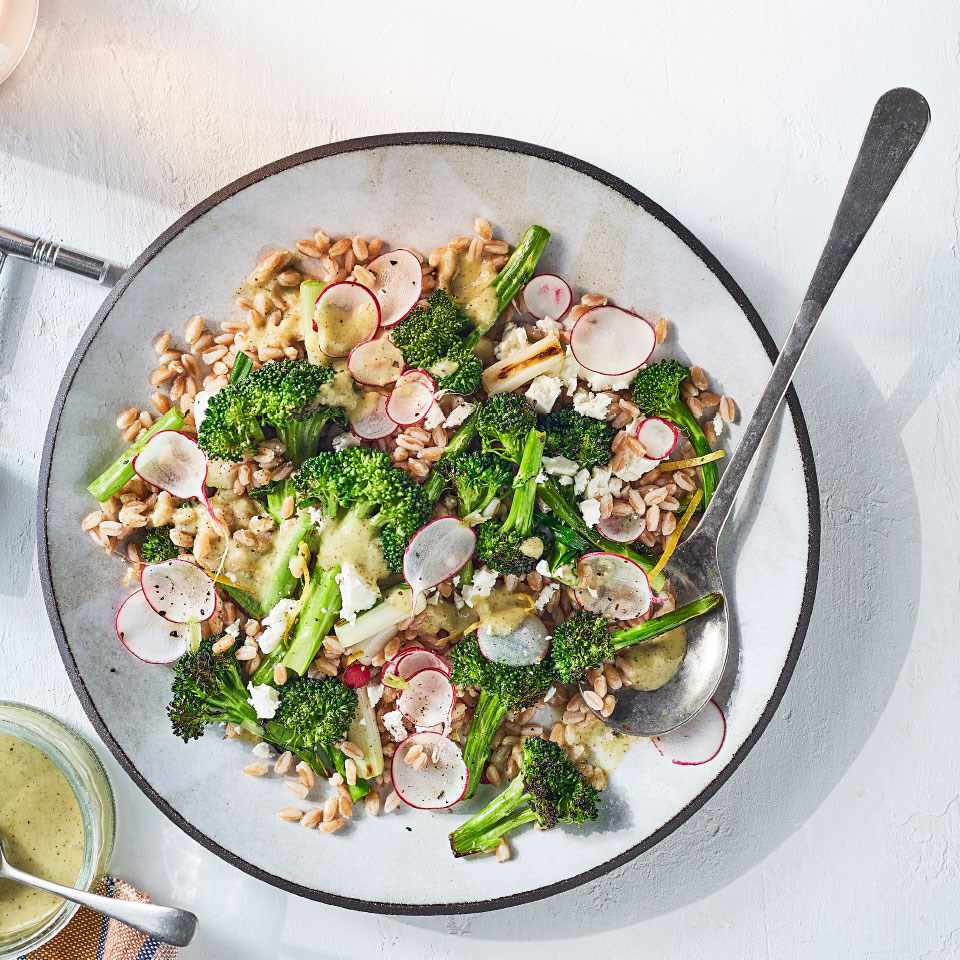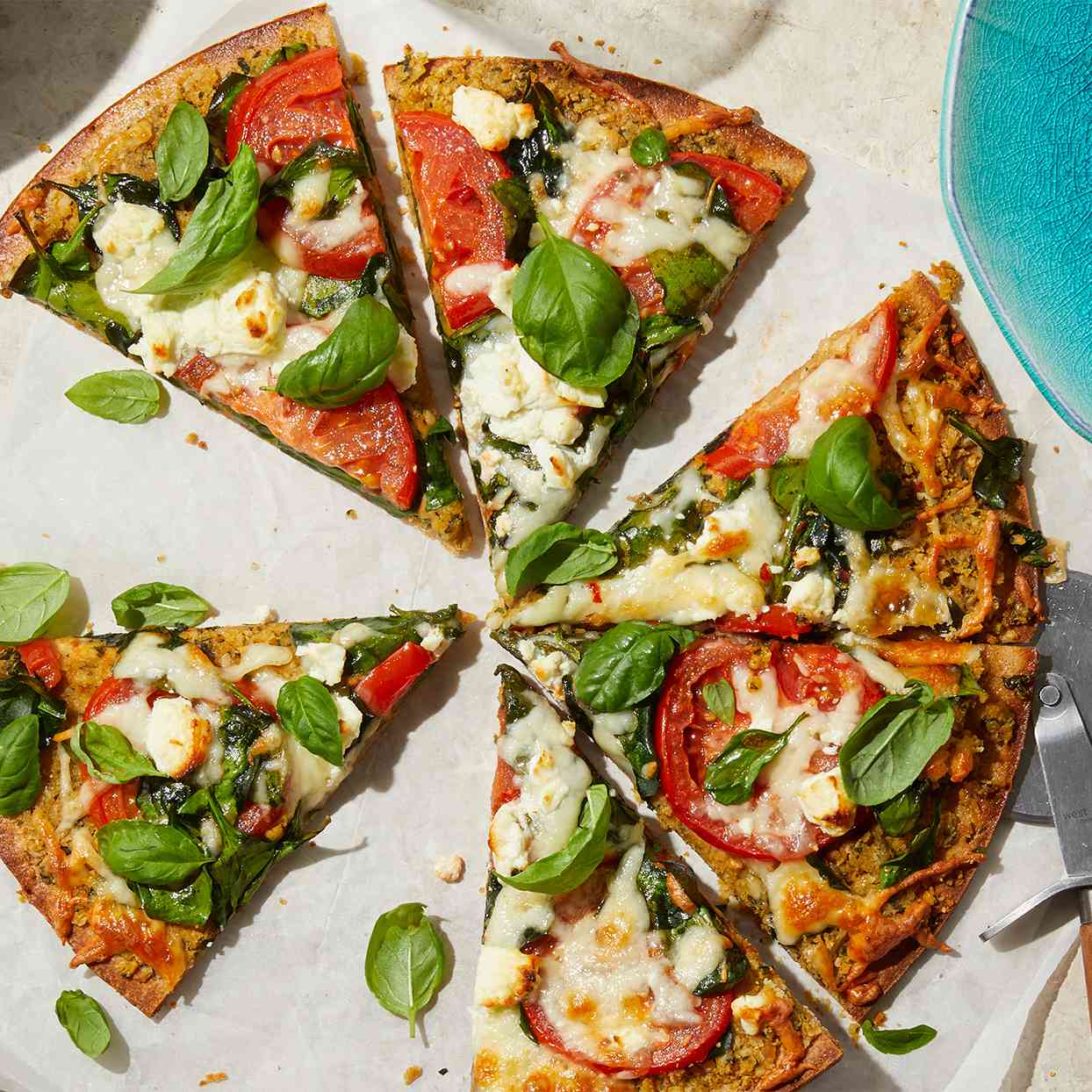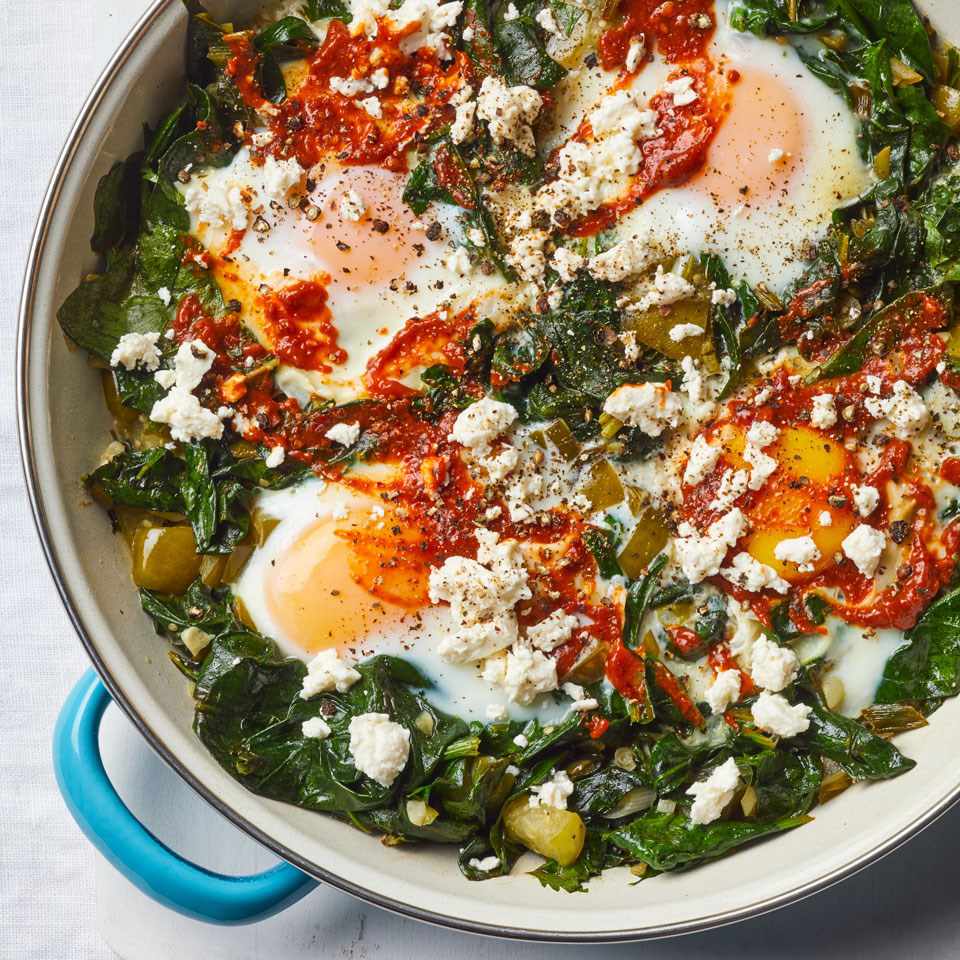Pictured Recipe: Whole-Grain Salad with Charred Broccoli, Spring Onions & Parsley-Sumac Vinaigrette
Are Carbs Really "Good" or "Bad"?
It's fair to say that carbs are a hot topic these days. Die-hard keto advocates will tell you they feel better without them, whereas the Dietary Guidelines for Americans (DGAs) recommend that you get 45 to 65% of your calories from carbs every day. And the discussion doesn't stop there. The DGAs say that at least half of your grains (a type of carb) should be whole grains, that you should eat five servings of fruits and vegetables (both a type of carb) per day and that you should limit added sugar (another type of carb) to 10% of your daily calories or less.
All of this is enough to leave a person thinking: Is there such a thing as good carbs and bad carbs?
Actually, the truth is a little bit more complicated. "There's always a misconception in regard to carbohydrates," says Madalyn Vasquez, M.S., RD. "Carbohydrates are composed of starch, dietary fiber and sugar," she says, and different carbs have different amounts of each. Sugar and starch provide energy, while fiber helps with digestion and can feed the healthy bacteria in your gut. A diet high in fiber—defined in the DGAs as at least 25 grams per day for women and 38 grams per day for men—is also linked to a reduced risk of heart disease.
Pictured Recipe: Basil-Chickpea Flatbread
Know the difference between simple carbs and complex carbs.
In a nutshell, there are two types of carbohydrates: simple carbs and complex carbs. Complex carbohydrates include whole grains, vegetables, peas and beans, and are made up of long chains of glucose (sugar) molecules that your body must work to break down before they are absorbed. Complex carbs also contain fiber, vitamins, minerals and small amounts of healthy fats and protein. Simple carbohydrates, on the other hand, are made up of smaller groups of glucose molecules and thus are much easier to absorb. Fruit contains simple carbohydrates, but also contains fiber that slows digestion, plus vitamins and minerals that support overall health. Processed carbs, juices and refined sugar, on the other hand, are very low in fiber, vitamins and minerals, and get absorbed more quickly into your bloodstream, causing a rapid spike in blood sugar.
Simple carbs impact blood sugar levels more.
If you're someone who is living with diabetes, you may already be intimately acquainted with counting carbohydrates.
"In regard to living with diabetes, there's no such thing as good or bad carbs—both can be enjoyed," Vasquez says. The important thing, she says, is realizing that simple carbs will have a faster and more drastic impact on blood sugar levels. Since a key component of diabetes management is keeping blood sugar levels within a safe range, this is an important thing to keep in mind. For people who manage their diabetes with insulin, a meal or snack high in simple carbs will likely require a higher insulin dose than a meal high in complex carbs.
Another thing worth noting is that fiber isn't the only nutrient that slows down the absorption of glucose into the bloodstream; protein and fat do the same thing. So, pairing simple carbs with healthy protein and fat sources is another way to prevent major spikes in blood sugar.
Our bodies need carbs.
"Carbohydrates are a major macronutrient that the body needs for energy," Vasquez says. Glucose is the body's preferred fuel source, essential for pretty much every cellular process. In fact, even on a super-low-carb diet like keto , the body ultimately breaks down other molecules and rearranges them to form glucose. The amount of carbs a person needs in a day varies based on several factors, including weight, height and physical activity.
Pictured Recipe: Chicken Sausage and Peppers
Prioritize eating complex carbs.
There are many benefits to eating a diet rich in whole grains, legumes, fruits and vegetables, Vasquez says. Doing so can reduce your risk of diabetes, heart disease and other chronic conditions.
But, Vasquez doesn't recommend completely cutting out processed, simple carbs. She also doesn't think of them as "bad." Although a diet made up of primarily processed, simple carbs can increase your risk of chronic disease, she says: "You can't realistically blame one specific food group for this." And, eating processed, simple carbs as part of an overall healthy diet—a balance of carbs, fat and protein, with five servings of fruits and vegetables per day—is totally OK.
Pictured Recipe: Green Shakshuka
Bottom line: There's no such thing as a "bad" carb.
High-fiber carbs like whole grains, vegetables and beans are slower to digest and packed with other important nutrients. Therefore, it's a good idea to choose these complex carbs most of the time. But simple, processed carbs aren't bad. A candy bar or a slice of cake won't wreck your health or ruin your day, as long as you're eating a balanced and varied diet overall.





0Comments